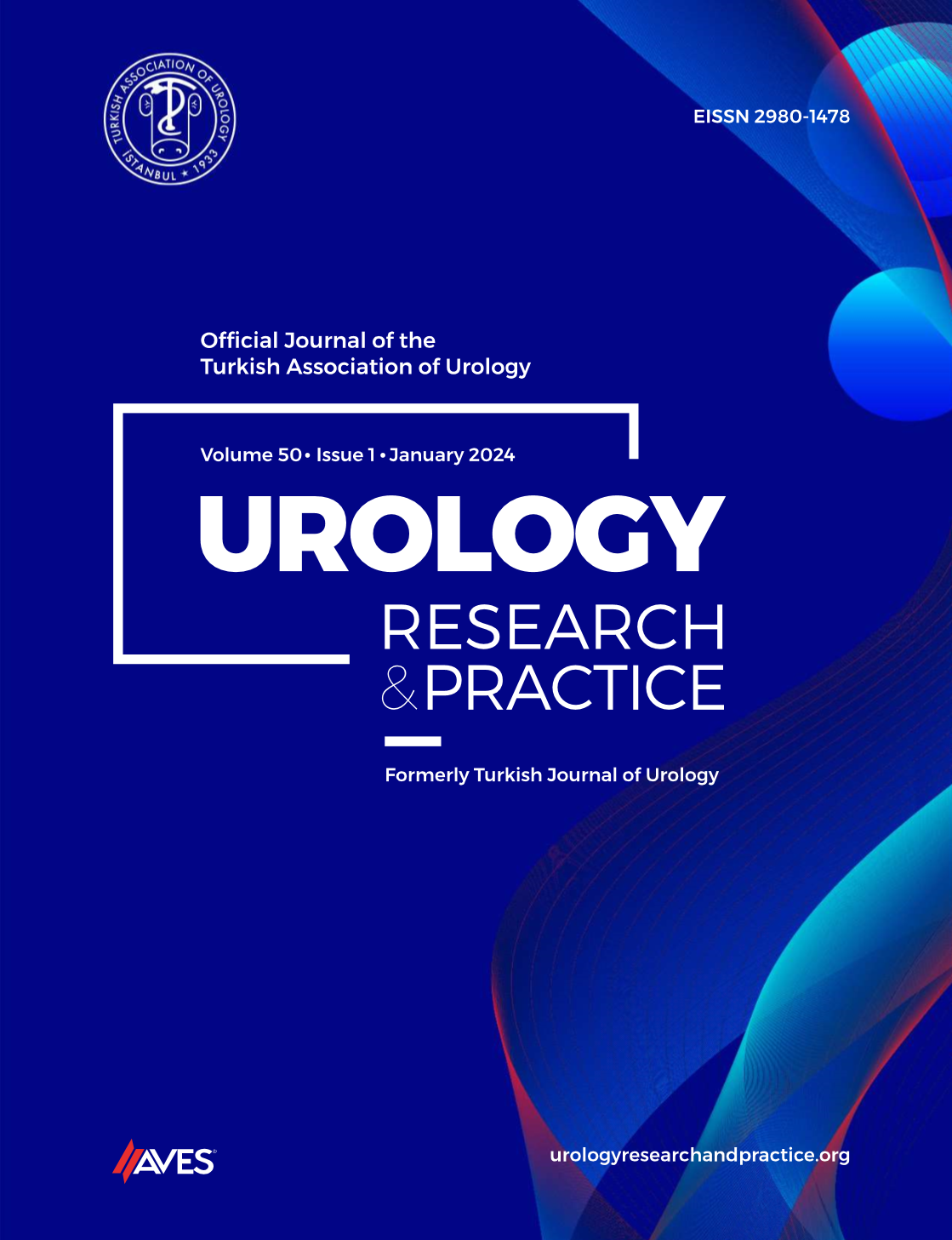Objective: Postoperative urinary tract infection is the most common complication of retrograde intrarenal surgery, and no consensus has been obtained that would reveal exact reasons yet. It was aimed to determine the possible factors, especially preoperative urinalysis, of postoperative urinary tract infection after retrograde intrarenal surgery.
Material and Methods: Patients who underwent retrograde intrarenal surgery in our clinic between 2013 and 2019 were retrospectively screened. Stone size 2 cm and pediatric patients were excluded from the study. The patients were divided into 2 groups as those with and without urinary infections in the early postoperative period. Urine analysis parameters and sterile urine cultures that were taken before the procedure were also analyzed separately.
Results: A total of 289 patients meeting the defined criteria were included in the study. There was no statistical difference between the 2 groups in terms of demographics. The number of patients with previous urinary tract infection history (55% vs. 20.5%) and operation time (62.5 ± 16.6 minutes vs. 60 ± 19.4 minutes) were significantly higher in those who had postoperative early urinary tract infection. Among urinalysis, the presence of pyuria, leukocyte count, leukocyte esterase positivity, and nitrite positivity were significantly higher in those who had postoperative early urinary tract infection. In multivariate analysis, urinary tract infection history, operation time, and nitrite positivity were found as independent factors in predicting postoperative early urinary tract infection.
Conclusion: Previous urinary tract infection history, prolonged operation time, and nitrite positivity in urinalysis were determined as independent risk factors for postoperative urinary tract infection in kidney stones between 1 and 2 cm.
Cite this article as: Kazan O, Cakici M, Keser F, et al. The role of preoperative urinalysis in predicting postoperative infection after retrograde intrarenal surgery in patients with sterile urine culture. Turk J Urol. 2022;48(2):136-141.

.png)


.png)